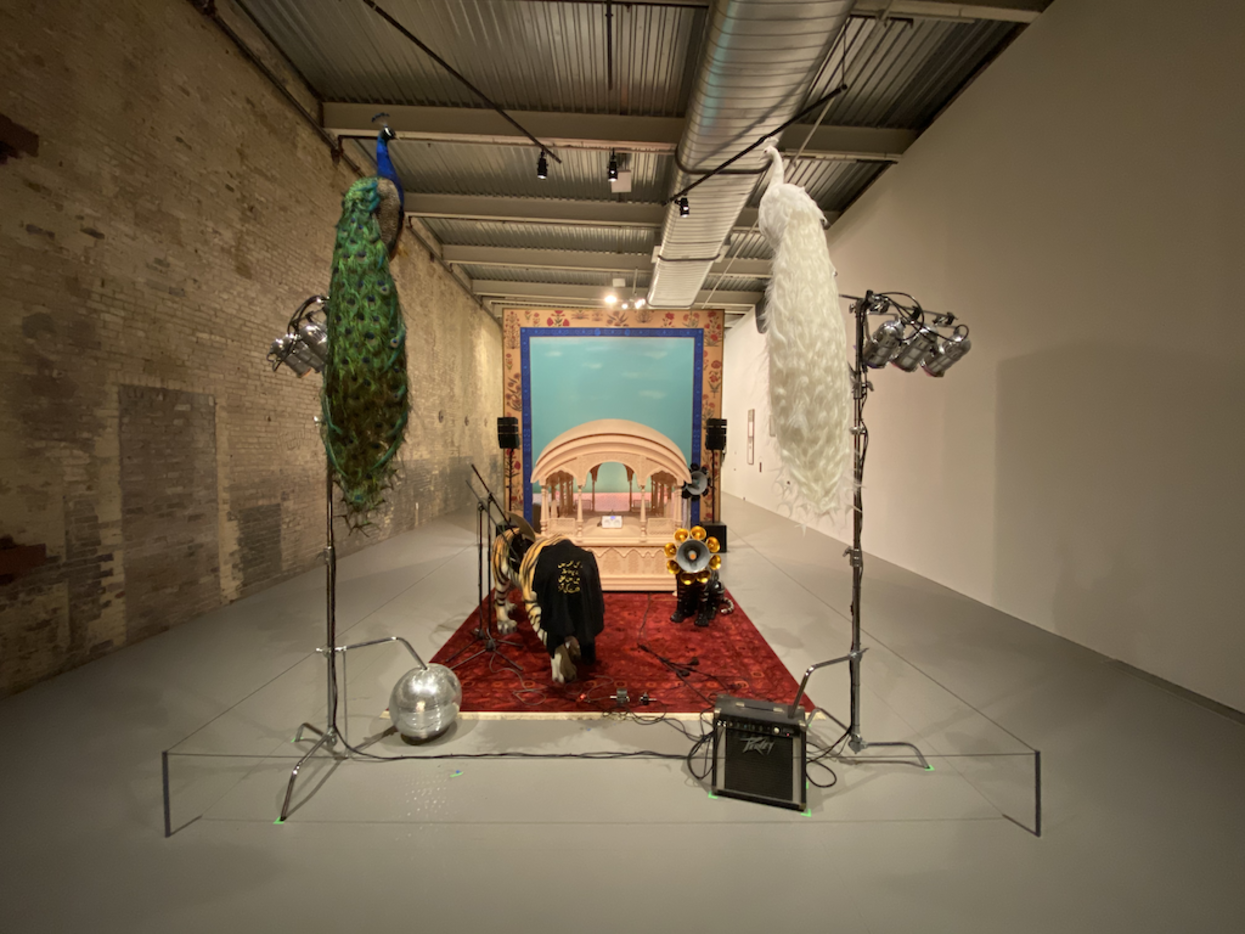Road to Hybridabad

An Art, Technology, and Culture Colloquium Lecture co-sponsored by the Arts Research Center and the South Asia Art Initiative
with Osman Khan
Professor, Stamps School of Art & Design, University of Michigan
The photograph of the homeland has faded (even its pixelated version), its imaginary horizon blended with the one that lays ahead. The no longer immigrant stands, insisting on place, building a new city on a hill, there will be no Bob or Bing in this number, we will misuse your tools to play our songs. This talk will explore how the artist (and diasporic communities) explore active hybridity as a strategy for disruption and resistance against the dominant power and challenge prevailing aesthetics and logics. The talk will highlight how these strategies challenge the impartiality of technology and expose its explicit (western) cultural impositions.
About Osman Khan
Osman Khan is an artist interested in constructing artifacts and experiences for social criticism and aesthetic expression. His work plays and subverts the materiality behind themes of identity, home/land, social and public space through participatory & performative installations and site-specific interventions. He is currently a Professor at the Penny W. Stamps School of Art & Design at the University of Michigan.
In addition to his artistic practice, Khan is also co-director of the Indus Detroit Artist Residency + Culture Lab, co-curator of Halal Metropolis, a recent series of exhibitions and programs exploring Muslim identity in southeast Michigan, a member of the cosmic jazz group the Astro Mystic Sama Ensemble and occasionally can be heard performing his tablatechno as TigerX.
Khan’s work has been shown at the Massachusetts Museum of Contemporary Art (MASS MoCA); the Museum of Contemporary Art Detroit (MoCAD); the Shanghai Biennale; the Zero1 Festival, San Jose; Witte de With Centre for Contemporary Art, Rotterdam; Ars Electronica Center, Linz; Socrates Sculpture Park, NYC; Frederik Meijer Gardens & Sculpture Park, Grand Rapids; Sangsangmadang, Seoul; among others.
He is a recipient of a Guggenheim Fellowship, an Art Matters grant, Ars Electronica’s Prix Ars Award of Distinction, and an Arctic Circle Residency. Articles about his work have appeared in numerous publications including Artforum, Art in America, Hyperallergic, I.D., LA Times, NY Times, among others.
Accessibility
BCNM events are free and open to the public. This event will be held in-person, on the UC Berkeley campus, and we ask all attendees to wear masks for the duration of the presenation. We strive to meet any additional access and accommodation needs. Please contact info.bcnm [at] berkeley.edu with requests or questions.
BCNM is proud to make conversations with leading scholars, artists, and technologists freely available to the public. Please help us continue this tradition by making a tax-deductible donation today. If you are in the position to support the program, we suggest $5 per event, or $100 a year.
